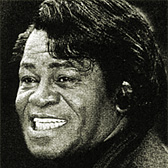
Seminal soul and R&B artist influenced a generation with his voice and songwriting
Otis Redding
InducteeCreated Stax Records' signature sound
Widely regarded as the ultimate soul man, both by those who knew him in his own time as well as by those who've simply "heard the records," Otis Redding, of all those artists whose death has come in mid-career, has had a momentous impact on the music of our time. Redding also tends to be remembered almost as much for his electrifying style in performance and recording as for his songwriting skills. And yet these too, particularly for a man whose life was extinguished in an airplane crash at age 26, were of exceptional proportions.
Strangely enough, the song that was to become perhaps his very best known, "Sittin' on the Dock of the Bay," was recorded just three weeks before his death in December 1967. A month after his passing, in the plane's dive into the icy waters of Wisconsin's Lake Monona, the song was released as a single and immediately began its race up the charts, soon to become Billboard's first-ever posthumous number one chart entry.
While "Dock of the Bay" was a kind of brooding, dark voicing of despair, ("I've got nothin' to live for/Look like nothin' gonna come my way,") his music, in general, was exultant and joyful. According to journalist Ruth Robinson, in her introduction to Rhino Records 1993 box-set of Redding's songs, "It is currently a revisionist theory to equate soul with the darker side of man's musical expression, blues. That fanner of the flame of 'Trouble's got a hold on me' music, might well be the father of the form if it is, the glorified exaltation found in church on any Sunday morning is its mother." And glorified exaltation indeed was an apt description of Otis Redding's songwriting and singing style.
Born in Dawson, Georgia in 1941, Redding was involved in music from his teen years, and first recorded one of his own early songs, "Shout Bamalama," at age 19 on the Confederate label in Athens, Georgia. Less than two years later, following a further honing of his songwriting skills, Redding did his audition recording with the up-and-coming Memphis label, Stax Records, with the song, "These Arms of Mine." The record marked the beginning of what was to become an extended collaboration between Redding and the Stax master studio musicians, Booker T. Jones, Donald "Duck" Dunn, A] Jackson Jr. and Steve Cropper, a group that would become widely known as Booker T. and The MG's, achieving its own legendary status.
Many other songs were yet to come from the increasingly prolific genius of Otis Redding. "These Arms”, though an audition song, actually reached the top 20 of the 1963 R&B charts, and also managed to cross over into the Hot 100 pop list. Other major hits included "Mr. Pitiful," in 1965 and "Dock of the Bay" in 1967, both co-written with the Stax resident guitar wizard, Steve Cropper; "I've Been Loving You Too Long" co-written with R&B star, Jerry Butler, and his own tune, "Respect," which became one of Aretha Franklin's all-time biggest hits. Other memorable Redding songs include "Sweet Soul Music," "I Can't Turn You Loose," "Happy Song," "Security," "Hard to Handle" and "I've Got Dreams to Remember."
A mark of Redding's major standing with the world of music and records, was his appearance at the legendary Monterey Pop Festival in 1967, hailed then and now as one of the seminal events in the history of rock and roll-oriented pop music. He was on the same Monterey stage as that which later spotlighted Jimi Hendrix and Reprise Records later issued an LP of the live Redding and Hendrix performances.
Another posthumous measure of Redding's place in the annals of songwriting came with the New York Times' 1970 compilation of 82 finalists in the paper's list of the very best songs of the '60s. Two of Redding's songs, "Respect" and "Sittin' on the Dock of the Bay," were on the final list.




